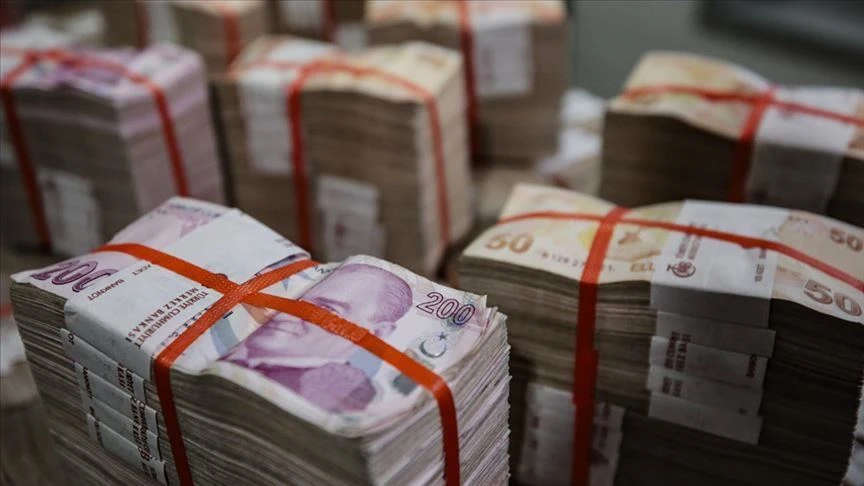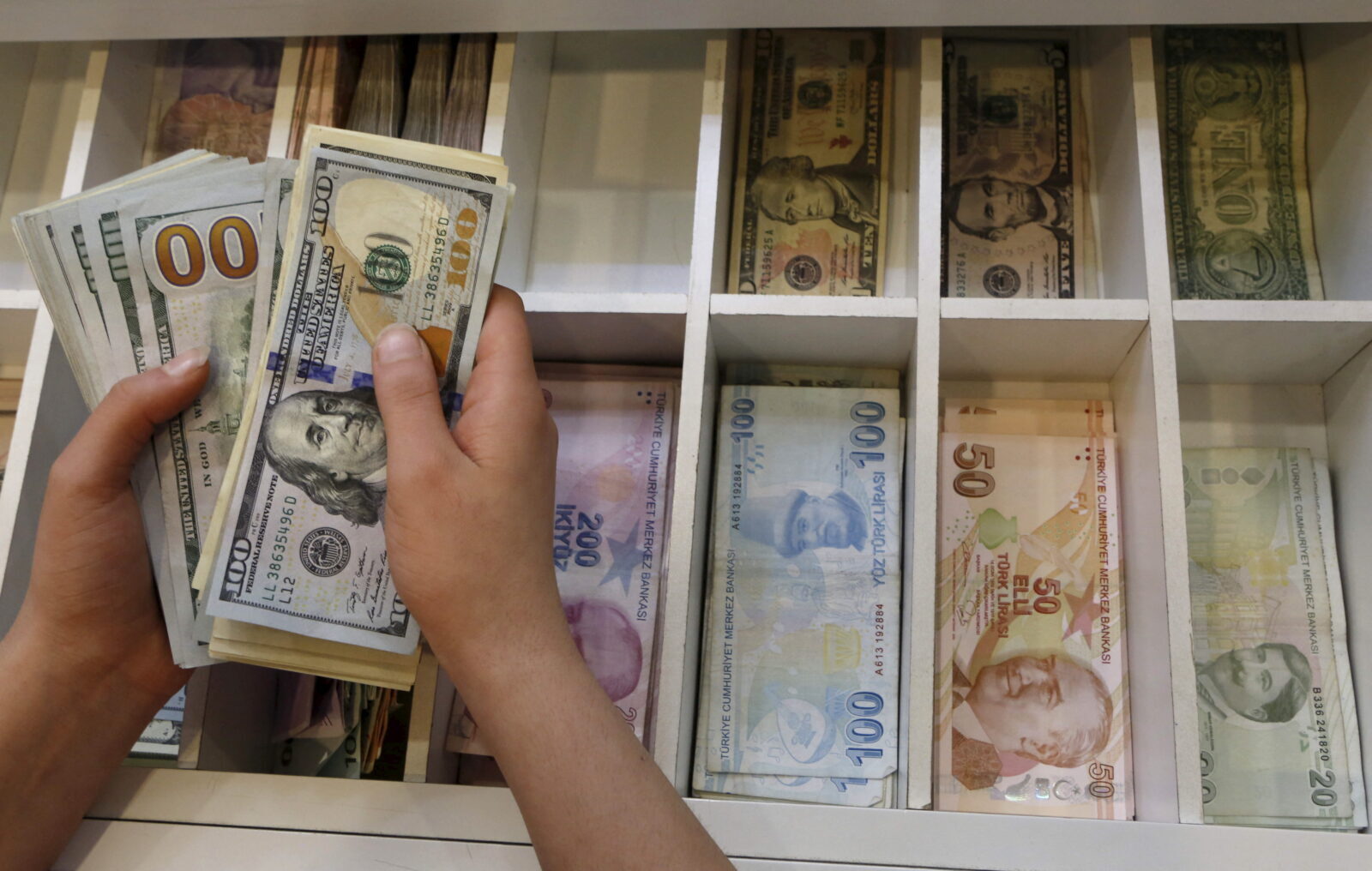Japan’s R&I raises Türkiye’s credit outlook from ‘negative’ to ‘stable’
 File photo shows stacks of Turkish lira banknotes, primarily 200 and 100 Turkish lira bills, bundled with red straps, accessed on August 25, 2025. (AA Photo)
File photo shows stacks of Turkish lira banknotes, primarily 200 and 100 Turkish lira bills, bundled with red straps, accessed on August 25, 2025. (AA Photo)
Japan-based credit rating agency, Rating and Investment Information, Inc. (R&I), has confirmed Türkiye’s foreign currency credit rating at “BB-” while upgrading the rating outlook from “negative” to “stable.”
In its report, R&I cited Türkiye’s strong growth potential, adherence to fiscal discipline, improvement in fiscal balance, continued tight monetary policy, macroeconomic stability, shrinking current account deficit, and growing foreign exchange reserves as key reasons behind the decision.
Türkiye’s growth potential driven by young population
The report emphasized Türkiye’s high growth potential, supported by its young population. R&I noted that Türkiye’s government continues to follow policies aligned with fiscal discipline, leading to further improvements in the fiscal balance. As a result, the public debt-to-GDP ratio is expected to remain low.
Supported by its young population structure, Türkiye’s economy has high growth potential. The government is pursuing polices by committing itself to fiscal discipline. The fiscal balance is expected to continue improving and thereby the government debt ratio is likely to remain at a low level. The central bank has put emphasis on price stability and maintained tight monetary policy. While this policy has led to a slowdown in the economy, the inflation rate has been ebbing, suggesting the process of macroeconomic stabilization is underway. With the current account deficit shrinking and foreign exchange reserves increasing, it can be concluded that the concerns on the external front have abated. Based on this recognition, R&I has affirmed the Foreign Currency Issuer Rating at BB- and changed the Rating Outlook to Stable back from Negative.
R&I

Inflation control and macroeconomic stability in Türkiye
R&I highlighted the central bank of Türkiye’s focus on price stability, maintaining tight monetary policy to manage inflation. Despite the economic slowdown, this policy has contributed to reducing inflation and stabilizing the economy.
Additionally, the report pointed out that concerns over Türkiye’s external position have diminished due to the narrowing current account deficit and rising foreign exchange reserves.
The report mentioned that Türkiye’s economy has been showing strong growth since 2021, driven by private consumption and exports. Despite the February 2023 earthquake, which impacted industrial production, demand for reconstruction has helped mitigate some of the negative effects. Türkiye achieved a 5.1% real GDP growth in 2023, thanks to robust private consumption.

For 2024, economic growth is expected to slow down, with the government projecting a 3.5% real GDP growth rate. The International Monetary Fund (IMF) predicts a similar growth rate of 3.4% for Türkiye in 2024.
Since 2021, the real gross domestic product (GDP) has shown strong growth, backed by the recovery in private consumption and export. Although the February 2023 earthquake in Southern Türkiye has caused damage to the industrial production, the reconstruction demand has cushioned its negative impact on the economy to some extent. Strong private consumption also provided a support, resulting in a real GDP growth rate of 5.1% in 2023. Against the backdrop of the persistent monetary policy tightening by the central bank ever since mid-2023 and a base effect, the disinflationary process has started. The annual inflation rate fell to approximately 52% in August 2024. The domestic demand has shown a sign of slowdown amid monetary tightening. While exports are expected to grow in the latter half of the year along with the recovery of the European economy, the economic growth is expected to be weaker than the previous year. The government projects the real GDP growth rate for 2024 at 3.5%, while the International Monetary Fund (IMF) projects the growth rate of approximately 3.4%.
R&I

Monetary policy and inflation expectations
R&I observed that the tightening of monetary policy by the Central Bank, which began in mid-2023, has led to a drop in inflation, with the annual inflation rate falling to around 52% in August 2024. Domestic demand is showing signs of slowing down due to the monetary tightening, while exports are expected to rise due to economic recovery in Europe. However, overall growth is forecasted to be weaker than in 2023.
Public finance and debt sustainability
R&I expects Türkiye to undergo an economic adjustment period, noting that steady growth could resume from 2025 onwards. The government’s ability to maintain its current policy stance and successfully manage inflation will be crucial in determining future economic stability.
In 2023, Türkiye’s current account deficit as a percentage of GDP fell to 4.0%, down from the record highs of 2022. R&I expects this trend to continue, with the deficit likely to narrow further in 2024, reflecting a slowdown in domestic demand.
Türkiye’s foreign exchange reserves are rising, and net foreign reserves, excluding swap transactions, have turned positive. However, concerns about foreign currency liquidity remain due to the short-term external debt burden.

Government policies and fiscal outlook
R&I noted that Türkiye’s central government deficit shrank to 0.9% of GDP in 2022, while the primary balance posted a surplus. However, due to the earthquake recovery efforts in 2023, the deficit rose to 5.2%. Under the leadership of Finance Minister Mehmet Simsek, the government is pursuing fiscal consolidation measures. This includes a package of new fiscal policies and tax reforms aimed at reducing public spending and rationalizing expenditures in 2024.
The Turkish government forecasts the fiscal deficit to drop to 4.9% of GDP in 2024 and further to 3.1% by 2025, as reconstruction efforts ease.
Türkiye’s general government debt-to -GDP ratio fell to 29.3% by the end of 2023, with expectations of further declines. The government projects the debt ratio to decrease to 25.6% in 2024, indicating a positive outlook for debt sustainability.



